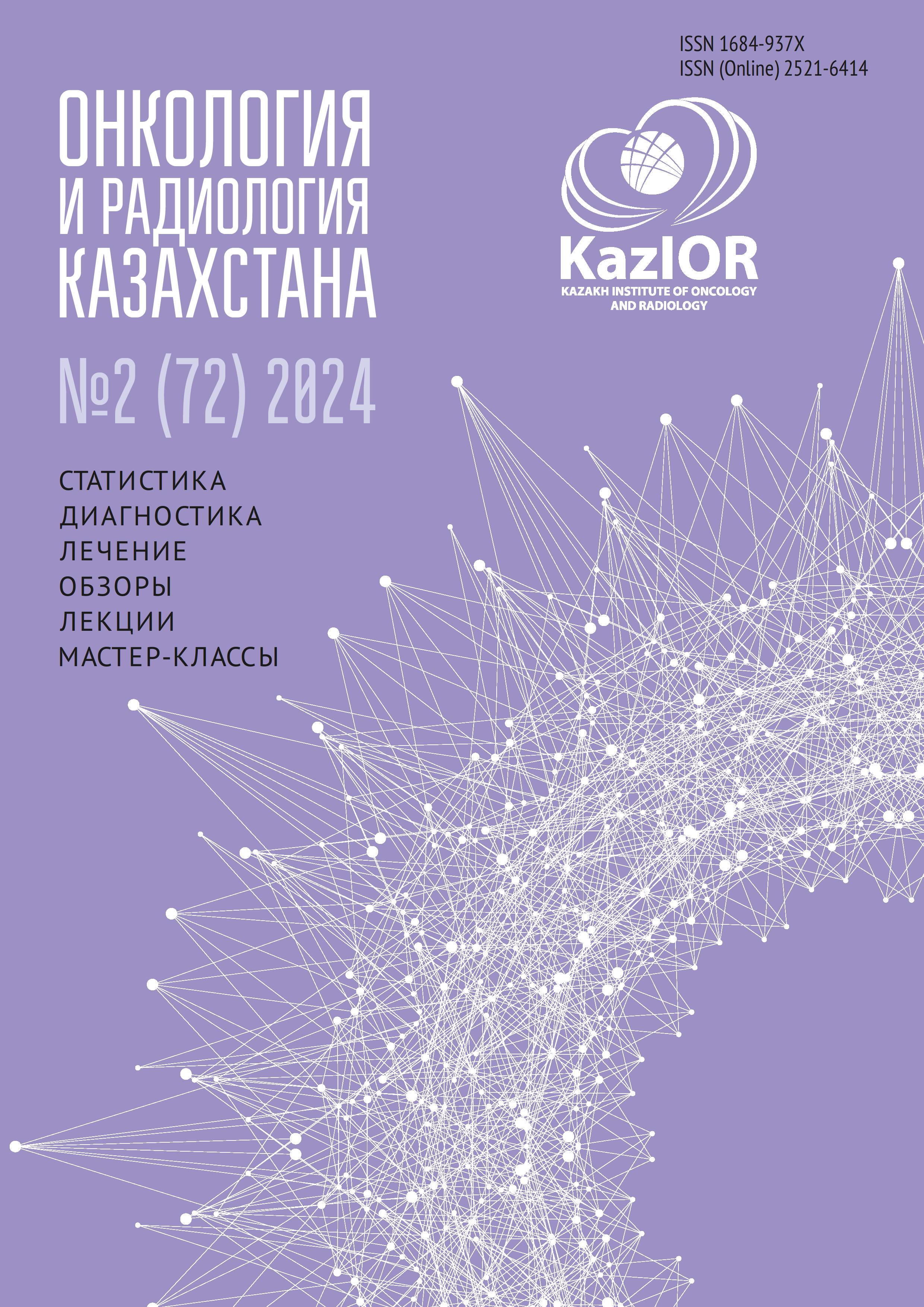Қазақстан Республикасында АПВ-на қарсы вакцина жасалған қыздардың репродуктивті денсаулығының жай-күйін бағалау
DOI:
https://doi.org/10.52532/2521-6414-2024-2-72-4-7Кілт сөздер:
адам папилломавирусы (HPV), репродуктивті денсаулық, вакцинацияАңдатпа
Өзектілігі: Вакцинацияланған қыздарда адам папилломавирусына (АПВ) қарсы вакцинацияның қауіпсіздігі қоғамды вакцинаға қатысты мифтер мен алаңдаушылықтарды жоққа шығаратын фактілер туралы хабардар ету қажеттілігімен ерекшеленеді. Жақында жүргізілген зерттеулер АПВ вакцинациясы мен қыздардың репродуктивті денсаулығына кері әсер ету және құнарлылықтың төмендеуі сияқты жағымсыз әсерлер арасында ешқандай байланыс таппады. Бұл жатыр мойны обырының алдын алуда вакцинацияның қауіпсіздігін растайды, сонымен қатар халық денсаулығын қолдау үшін вакцинациялау бағдарламалары мен ақпараттық науқандарды жалғастырудың маңыздылығын көрсетеді.
Зерттеудің мақсаты – 2013-2015 жж. АПВ-ге қарсы егілген қыздардың репродуктивті денсаулығын бағалау.
Әдістері: 2013-2015 жылдары АПВ-ға қарсы егілген қыздарға сауалнама жүргізу арқылы Алматы, Павлодар, Астана қалаларында сауалнама жүргізілді.
Нәтижелері: Зерттеу нәтижелеріне сәйкес, етеккір циклінің бұзылуы бар қыздардың пайызы вакцинацияланбағандарға (11,2%) қарағанда вакцинацияланғандар арасында (5,6%) төмен болды. Сондай-ақ вакцинацияланған қыздардың балаларын АПВ-ға қарсы вакцинациялауға дайындығы жоғары (43,5% қарсы 29,9%), бұл олардың жоғары хабардарлығы мен алдын алуға дайындығын көрсетеді. Осылайша, АПВ вакцинациясы қыздардың репродуктивті денсаулығына теріс әсер еткен жоқ.
Қорытынды: Біздің зерттеуімізге сәйкес, АПВ-ға қарсы вакцинация АПВ-ға қарсы егілген қыздардың репродуктивті әлеуетіне әсер етпейді. Бұл HPV-мен байланысты аурулардың даму қаупінің төмендеуімен байланысты және ұрпақты болу денсаулығына теріс салдары болмайды. HPV вакцинациясы қауіпсіздігі мен тиімділігі дәлелденген жатыр мойны обырының алдын алудың маңызды шарасы болып табылады.

